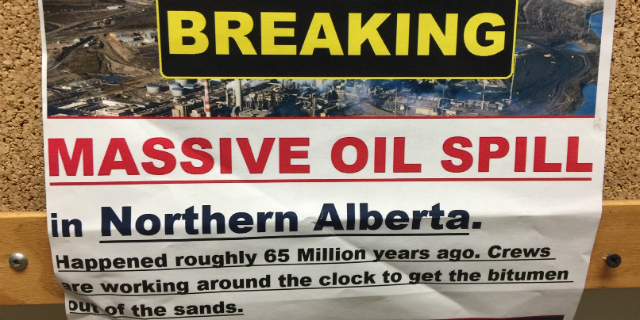In October, the UK marked Green Great Britain Week and the 10th anniversary of the Climate Change Act. In Calgary, we marked it by taking a closer look at Alberta’s massive energy sector and the opportunities for the UK.
The Canadian province of Alberta is known worldwide as the ‘gateway to the Rockies’ and home of the Calgary Stampede ’the greatest outdoor show on earth’. Calgary is the corporate home of Canada’s oil sector, with its much maligned oil sands industry, whose success has been a key contributor to Alberta and Canada’s economic growth. Calgary based oil companies are also major investors and operators in the UK North Sea.
But, did you know Alberta has the fastest growing renewables sector in Canada? Spurred on by its Climate Leadership Plan and the highest levels of energy innovation spend in Canada, Alberta holds great opportunities for innovative UK energy suppliers involved in emissions reduction and clean energy.
To start our Green GB Week, we promoted the launch (in Ottawa and London) of the £11m (CDN $20m) UK Canada ‘Power Forward’ Smart Energy Systems Challenge. This Challenge will fund six collaborative pilot projects to develop ground-breaking energy storage and smart grid solutions which will enable better integration of renewable energy sources onto the power grid. In November, we will be bringing seven small UK companies out to Alberta for the Decentralised Energy Forum to help broker partnerships for the challenge.
The Power Forward Challenge is the second UK Canada initiative under our ‘Clean Growth Partnership’, the first being the Powering Past Coal Alliance launched in Nov 2017.
The next day, I went to Fort McMurray in Northern Alberta to see for myself some oil sands operations and to speak to local politicians and business leaders. You may recall that Fort McMurray suffered devastating damage in a sudden massive wildfire outbreak in May 2016. The whole town of 90,000 people were evacuated within hours, the drama making headlines around the world. The community has recovered and houses have been rebuilt. A local artist sells decorative glassware made from glass recovered from fire-damaged houses. It was a salient and very costly lesson in the impacts of a natural disaster caused by extreme weather.
Hosted by Suncor, Canada’s largest integrated oil company, we first visited a Steam Assisted Gravity Drainage (SAGD) facility where bitumen is melted deep underground with pressurised steam and then pumped up to the surface. We then visited an open bitumen mine and saw the gigantic earth moving vehicles. ‘It’s like driving a two storey house sitting up in the washroom on the first floor’, said a driver. Both facilities have developed impressive technologies with many billions of dollars of capital investment.
Suncor also invested CDN $350m in 2017 in developing and deploying new technologies to improve sustainability and efficiency. They have a stated aim to reduce the total emissions intensity of the production of their oil and petroleum products by 30% by 2030 (based on 2014 levels). Ironically, the cleaner looking SAGD facility has a higher carbon intensity than unsightly open bitumen mines. Producing all that steam takes a lot of natural gas; however, adding gas fired electricity co-generation capacity is making a big difference by providing low emissions electricity to the provincial grid as a by-product. Afterwards, we visited a reclaimed tailings pond that is now a nature park, demonstrating the commitment and ingenuity of oil sands operators in reducing their environmental impact.
Back in Calgary, I visited a solar panel installation on the roof of the local science centre, Telus Spark. The renewables sector is booming in Alberta since the Government set a target of 30% renewables by 2030. Several UK companies have set up in Calgary to bring UK project expertise to the market.
There are a number of thriving future energy research centres and incubators in Alberta offering great opportunities for collaboration with the UK. The Power Forward Challenge seeks to bring on such partnerships.
What are my conclusions from a fascinating week? The opportunities and challenges of low carbon transition in Alberta, in Canada, as indeed everywhere, are as real and as pressing as they ever were – as the IPCC pointed out so clearly in their recent report. Whatever you think about the science, the business case for action is actually straightforward – the costs of action are way, way less than the cost of inaction. The business community here is seeing the opportunity, managing the risks and really making a difference. There are great opportunities for the UK to ‘be part of the energy’. No surprise then that that is the strapline for the Calgary Economic Development agency!

